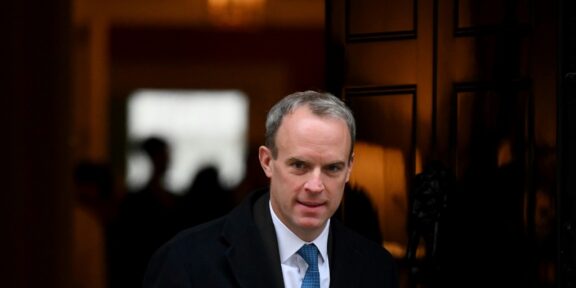Ethiopian Prime Minister Abiy Ahmed came to power vowing sweeping reforms that earned him a Nobel Peace Prize, before becoming mired in a brutal internal conflict that threatens to destabilise the entire Horn of Africa region.
As the war in northern Ethiopia drags into its second year, the 45-year-old’s image as a modern peacemaker lies in tatters and the surge of hope that accompanied his initial appointment in 2018 has faded, at least for his critics.
When the deeply ambitious Abiy, who was sworn in for a new term this month after a landslide win in June elections, picked up his Nobel in 2019 for Ethiopia’s rapprochement with neighbouring Eritrea, he declared: “War is the epitome of hell for all involved.”
But he remains defiant despite mounting international alarm over the conflict that has killed thousands of people and pushed hundreds of thousands to the brink of starvation.
“It’s hard to imagine a greater fall from grace than Abiy Ahmed’s. From the celebrated heights of a Nobel Peace Prize to a pariah in just two years,” said Cameron Hudson, a senior fellow at the Atlantic Council’s Africa Center.
“This is certainly not the first time the West has been seduced by the promise of a next-generation leader. And it’s not the first time we have been let down by that leader.”
Abiy blames the former ruling party of the Tigray region, the Tigray People’s Liberation Front (TPLF), for starting the war, and there is considerable domestic support for what his government long termed a “law enforcement operation”.
While visiting soldiers at the front during Ethiopian New Year celebrations in September, he declared that the TPLF was doomed to certain defeat.
“The current bandits are target practice for us… By practising on them, we will build a strong military,” he said.
– Seizing the moment –
Born in the western town of Beshasha to a Muslim father and Christian mother, Abiy has described sleeping on the floor in a house with no electricity or running water.
Fascinated with technology, he joined the military as a radio operator while still a teenager.
In his Nobel speech, he recalled his time during the 1998-2000 war with Eritrea, saying his entire unit was wiped out in an artillery attack that he survived only because he had left a foxhole to get better antenna reception.
He rose to lieutenant-colonel before becoming the first head of Ethiopia’s cyber-espionage Information Network Security Agency.
Then came stints as a lawmaker and minister of science and technology.
Abiy’s path to high office can be traced to late 2015.
A government plan to expand Addis Ababa’s administrative boundaries into the surrounding Oromia region was seen as a land grab, sparking protests led by the Oromos, Ethiopia’s largest ethnic group, and the Amharas, the second-largest.
The TPLF-dominated ruling coalition imposed states of emergency and carried out mass arrests, but the protests continued.
When then-prime minister Hailemariam Desalegn abruptly resigned, coalition members chose Abiy to become the first Oromo prime minister in 2018.
He released dissidents from jail, apologised for state brutality and welcomed home exiled groups — part of a democratic rebirth meant to culminate in the most competitive elections in Ethiopia’s history.
– Road to war –
But all the while, Tigray was seething. The TPLF did not take kindly to Abiy’s perceived attempts to sideline them.
When Abiy dissolved the ruling coalition and formed the Prosperity Party in 2019, the TPLF refused to go along and defied him by holding “illegal” regional elections last year.
In November 2020, Abiy ordered troops into Tigray, a move he said was in response to TPLF attacks on federal army camps.
He promised a swift victory, but fighting has spread into neighbouring regions and there have been many reports of atrocities including massacres and mass rape.
Critics say Abiy has embraced the same authoritarianism many hoped he would end, overseeing mass arrests and abuses by security forces.
Gone are the heady early days of “Abiymania” — now his opponents openly disrespect him.
“He started to behave as a lost child at a crossroads. Such a child cannot go back because he doesn’t know from where he came, and he cannot proceed because he does not know where he’s going,” Merera Gudina, an opposition leader from Oromia, told AFP earlier this year.
But his supporters remain true believers.
Early on in the Tigray war, one official even suggested that, given Abiy’s efforts to resolve the conflict, he might be deserving of “a second Nobel Prize”.
rcb/np/amu/gd








